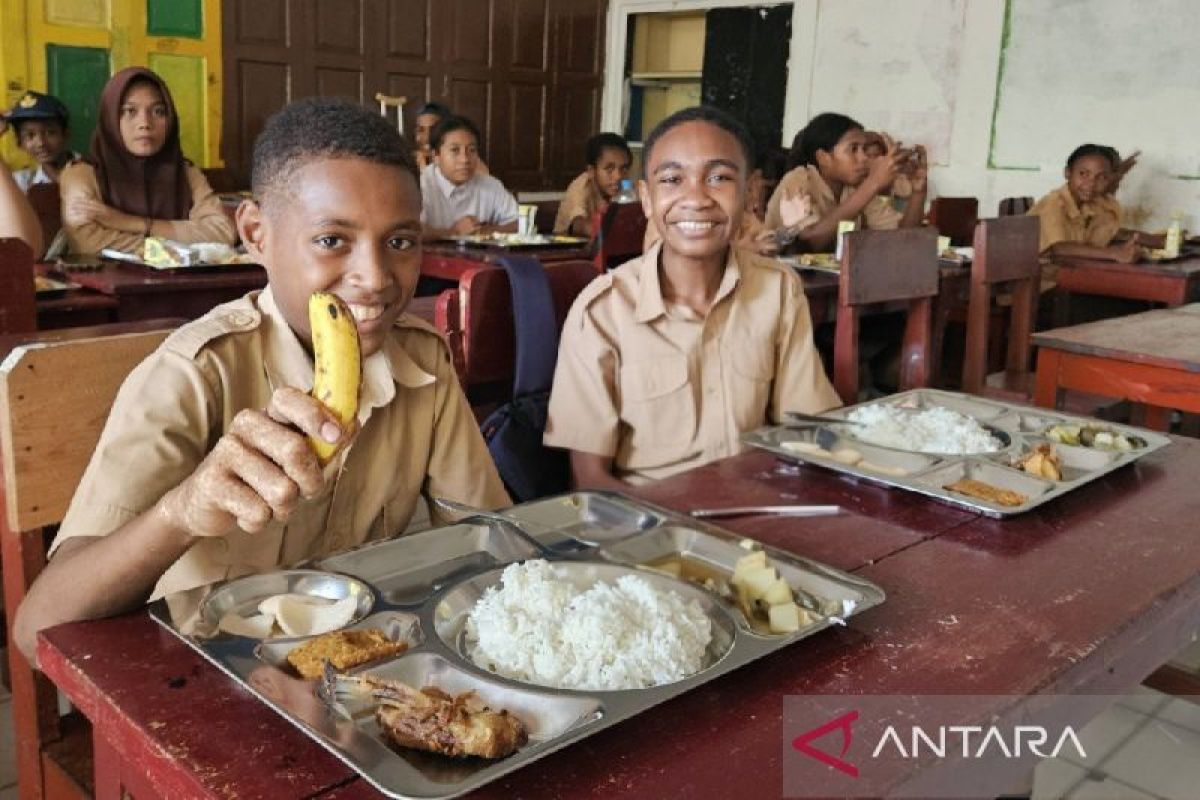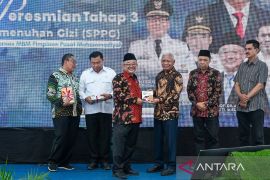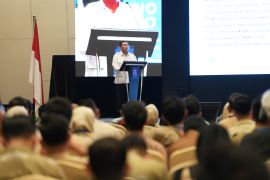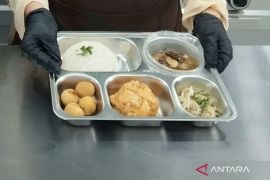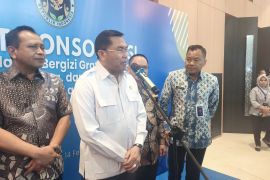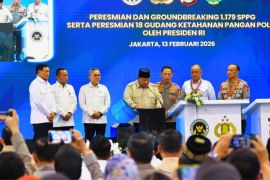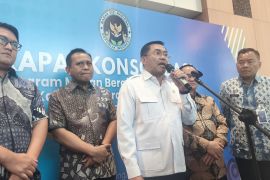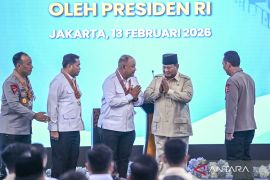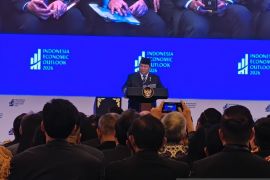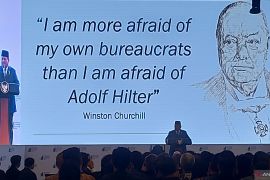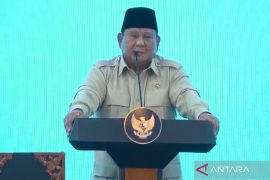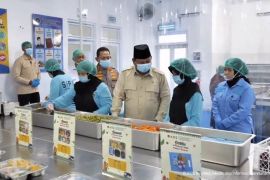Launched on January 6 this year, the MBG program is envisioned as a strategic means to improve the nutritional intake of children, teenagers, pregnant women, and breastfeeding mothers in a bid to nurture healthy, intelligent, and competitive talents capable of advancing Indonesia globally.
By the end of October 2025, the program had served more than one billion portions of nutritious meals to nearly 40 million citizens nationwide, including in six provinces across the Papua region, with support from around 13 thousand kitchens officially called Nutrition Fulfillment Service Units (SPPGs).
The government has designated the Papua region as one of its priority areas for the MBG program, given its more complex nutritional issues and challenges compared to other parts of Indonesia.
In Papua Province, for instance, the stunting prevalence rate stood at 28.6 percent, higher than the national average of 21.5 percent, according to the 2023 Indonesia Health Survey. This rate indicates that three out of ten children in the province have their growth impeded by chronic malnutrition.
“Nutrition-related issues in Papua are complex and rooted not only in limited access to food but also in inadequate parenting methods, illnesses, and living environment conditions. Integrated, cross-sector measures are key to addressing these matters,” Papua Deputy Governor Aryoko Rumaropen said.
Such measures should be complemented by an effective and holistic approach to food safety requirements, the formulation of menus with balanced nutritional content, and the monitoring of children’s growth and development.
As of August, the Papua region was home to more than 100 SPPGs, including 38 in Papua Province, 27 in West Papua Province, 15 in Southwest Papua Province, 14 in Central Papua Province, four in Highland Papua Province, and three in South Papua Province.
In these provinces, the National Nutrition Agency (BGN) directs SPPG operators to make the most of locally sourced ingredients and food materials for the MBG program, such as fish, cassava, soybeans, water spinach, papaya flowers, corn, moringa leaves, sweet potatoes, chayote, and sayur lilin (Saccharum edule).
This approach is meant to ensure that the MBG program benefits local communities both nutritionally and economically. Central Papua Governor Meki Fritz Nawipa approved this approach, confirming that the program has benefited not only MBG recipients but also farmers and ranchers.
Tracing progress
Only several months into its implementation, the MBG program has led to concrete improvements in public health.
In Jayapura City, Papua Province, MBG has contributed to a decline in stunting prevalence, from 21.3 percent in 2023 to 15.5 percent in September 2025. This achievement is inseparable from the program’s reach of over 33 thousand people across the city, including nearly 500 pregnant women, breastfeeding mothers, and toddlers.
As of October, the program had served around 34 thousand people in Jayapura District and more than three thousand schoolchildren in Mimika District, Central Papua. By August, MBG had reached approximately three million beneficiaries across West Papua and Southwest Papua provinces.
These figures also suggest that the program has, to some extent, stimulated local economies, particularly through the operations of dozens of SPPGs. BGN Deputy Head Nanik S. Deyang noted that each kitchen could employ around 50 workers and engage more than 10 local ingredient suppliers.
With its vast natural resources and culturally rich communities, the Papua region holds strong potential to cultivate a generation of excellence, especially as the government positions the MBG program as a vital social investment to raise healthy, intelligent, and resilient youth capable of navigating global dynamics.
Still, several challenges remain, notably limited access to remote areas, which continues to hinder the distribution of food supplies, and a shortage of professional nutritionists at community health centers to monitor child growth and development.
Such challenges, however, should not be seen as roadblocks. Instead, they must serve as motivation for all stakeholders to act with creativity and innovation, understanding that every problem, with the right approach, has a solution.
Fostering collaboration
As stated earlier, due to the complex nature of the nutritional challenges it faces, the Papua region requires greater efforts to foster synergy among key stakeholders, including government institutions, business entities, and the public.
The central government is well aware of this necessity, as reflected in a dialogue held by the Ministry of State Secretariat in Manokwari District, West Papua, on October 13, under President Prabowo’s instruction.
The event aimed to gather input and suggestions related to the MBG program’s implementation from local governments, schools, and SPPG operators.
During the dialogue, the ministry urged the BGN to step up coordination with regional governments and encouraged greater contributions from local education and health offices to the national program.
Meanwhile, the Papua provincial government has partnered with the United Nations Children's Fund (UNICEF) to mobilize schools to play an active role in promoting nutritional and health education for children to support the MBG program.
Deputy Governor Rumaropen expressed confidence that schools have the capacity not only to enlighten children but also to guide them to grow into mentally and physically healthy individuals.
Airin Roshita, a UNICEF nutrition specialist, noted that the provision of free nutritious meals in schools has led to better attendance and achievement among students in various countries, especially among children from families with limited access to decent food.
She said UNICEF will support the Papua region, particularly Papua Province, to enhance MBG implementation through capacity-building activities for teachers, dissemination of nutritional needs for parents, and improvements in school sanitation quality.
Solid synergy among all stakeholders could help Papua emerge as a national model for the implementation of the MBG program, she added.
The MBG program has also sparked greater awareness that the responsibility for shaping Papua’s future does not rest solely with the state but also with schools, families, and communities.
Every plate of nutritious food served stands as a symbol of hope, telling people that meaningful change can begin with simple steps, from a humble plate of rice complemented by nutritious side dishes that bring smiles to children’s faces.
In the long term, the MBG program serves as a strategic vehicle for instilling healthy eating habits among Papuan children. The initiative goes beyond providing free meals; it aims to nurture a culture of health and mutual care.
Related news: Free meals program reach 23,540 students in West Papua's Manokwari
Related news: BGN taps local MSMEs to supply MBG kitchens in West Papua
Editor: Rahmad Nasution
Copyright © ANTARA 2025
